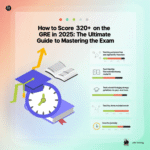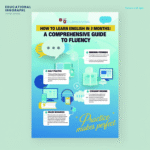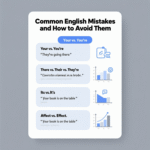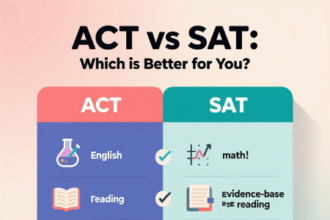In today’s competitive academic and professional landscapes, achieving stellar exam results is a critical milestone for students and professionals alike. Free mock tests offer an accessible, powerful tool to enhance preparation, boost confidence, and optimize performance. By simulating real exam conditions, identifying knowledge gaps, and refining time management skills, these practice tests are indispensable for anyone aiming to excel. This comprehensive guide explores how to leverage free mock tests to maximize exam results, providing actionable strategies, practical tips, and detailed insights to help you succeed.
- Why Free Mock Tests Are Essential for Exam Success
- Finding High-Quality Free Mock Tests
- How to Incorporate Free Mock Tests into Your Study Plan
- Step 1: Assess Your Current Level
- Step 2: Create a Study Schedule
- Step 3: Simulate Exam Conditions
- Step 4: Analyze Results Thoroughly
- Step 5: Adjust Your Study Plan
- Strategies to Maximize Mock Test Effectiveness
- Active Recall and Spaced Repetition
- Focus on Weak Areas
- Practice Time Management
- Simulate Real-World Distractions
- Track Progress Over Time
- Common Mistakes to Avoid When Using Free Mock Tests
- Over-Reliance on Mock Tests
- Ignoring Answer Explanations
- Not Simulating Exam Conditions
- Neglecting Weak Areas
- Overloading on Practice Tests
- Advanced Techniques for Using Free Mock Tests
- Customize Mock Tests
- Use Adaptive Learning Tools
- Incorporate Peer Review
- Leverage Technology
- Practice Mental Endurance
- How Free Mock Tests Prepare You for Specific Exams
- Standardized Tests (SAT, ACT, GRE)
- Professional Certifications (PMP, CFA, CPA)
- Academic Exams (AP, IB, A-Levels)
- Language Proficiency Tests (TOEFL, IELTS)
- Overcoming Challenges with Free Mock Tests
- Combining Free Mock Tests with Other Study Resources
- Real-Life Success Stories
- Long-Term Benefits of Regular Mock Test Practice
- Recommendations and Suggestions
- Frequently Asked Questions (FAQs)
Why Free Mock Tests Are Essential for Exam Success
Free mock tests replicate the structure, content, and pressure of actual exams, making them a cornerstone of effective preparation. Unlike traditional study methods, such as rote memorization or passive reading, mock tests engage active learning, enabling you to apply knowledge in a timed, exam-like environment. They help bridge the gap between theoretical understanding and practical application, ensuring you’re fully equipped to tackle the real thing.
Benefits of Using Free Mock Tests
-
Simulate Real Exam Conditions: Mock tests mirror the format, question types, and time constraints of actual exams, preparing you for the real experience.
-
Identify Strengths and Weaknesses: Detailed performance analytics highlight areas where you excel and topics requiring further study.
-
Improve Time Management: Practicing under timed conditions helps you allocate time efficiently across questions.
-
Boost Confidence: Familiarity with the exam format reduces anxiety and builds self-assurance.
-
Enhance Retention: Active recall during mock tests strengthens memory and improves long-term retention of information.
By incorporating free mock tests into your study routine, you create a structured, results-driven approach to preparation that aligns with modern learning methodologies.
Finding High-Quality Free Mock Tests
The first step to leveraging free mock tests is identifying reliable, high-quality resources. Not all mock tests are created equal—some may lack accuracy, depth, or alignment with your exam’s syllabus. To ensure you’re using effective tools, follow these guidelines:
Sources for Free Mock Tests
-
Official Exam Websites: Many exam boards, such as SAT, ACT, or professional certification bodies, offer free practice tests aligned with their syllabi.
-
Educational Platforms: Websites like Khan Academy, Coursera, and edX provide free mock tests for a variety of exams, from high school to professional certifications.
-
Open-Source Communities: Platforms like Quizlet or Reddit often host user-generated mock tests that can be tailored to specific subjects.
-
Local Libraries and Schools: Many institutions provide access to free practice materials, including digital mock tests.
-
Government and Nonprofit Organizations: Some governments and nonprofits offer free resources for standardized tests, such as GED or TOEFL.
When selecting a mock test, verify that it aligns with the latest exam format, includes detailed answer explanations, and is sourced from a reputable provider. This ensures the practice mirrors the actual exam, maximizing its effectiveness.
How to Incorporate Free Mock Tests into Your Study Plan
To achieve better exam results, integrate free mock tests strategically into your study schedule. A well-structured approach ensures you maximize the benefits of practice while balancing other study activities. Here’s how to create an effective plan:
Step 1: Assess Your Current Level
Before diving into mock tests, evaluate your baseline knowledge. Take an initial diagnostic test to identify your strengths, weaknesses, and overall preparedness. This will guide your study focus and help you prioritize topics that need improvement.
Step 2: Create a Study Schedule
Develop a timeline that incorporates regular mock tests alongside content review and practice. For example:
-
Weeks 1–4: Focus on reviewing core concepts and taking one mock test per week to gauge progress.
-
Weeks 5–8: Increase mock test frequency to twice weekly, analyzing results to refine strategies.
-
Final Weeks: Take full-length mock tests under timed conditions to simulate the real exam.
Step 3: Simulate Exam Conditions
To replicate the pressure of the actual exam, take mock tests in a quiet, distraction-free environment. Use a timer, avoid interruptions, and adhere to the same rules as the real exam (e.g., no calculators if not allowed). This builds familiarity with the exam’s pace and structure.
Step 4: Analyze Results Thoroughly
After completing each mock test, review your performance in detail. Focus on:
-
Correct Answers: Understand why you got these right to reinforce effective strategies.
-
Incorrect Answers: Identify patterns in mistakes, such as misreading questions or time mismanagement.
-
Time Allocation: Note questions that took too long and practice strategies to improve speed.
-
Knowledge Gaps: Create a list of topics to revisit based on weak areas.
Step 5: Adjust Your Study Plan
Use insights from mock test analyses to tailor your study plan. Allocate more time to challenging topics, seek additional resources (e.g., textbooks, online tutorials), and incorporate targeted practice questions to address weaknesses.
Strategies to Maximize Mock Test Effectiveness
To fully harness the power of free mock tests, adopt strategies that enhance learning and performance. These techniques ensure you’re not just practicing but actively improving with each test.
Active Recall and Spaced Repetition
Mock tests engage active recall, a learning technique where you retrieve information from memory, strengthening neural connections. Combine this with spaced repetition, reviewing material at increasing intervals, to improve retention. For example, after a mock test, revisit weak topics the next day, then again in three days, and once more in a week.
Focus on Weak Areas
Use mock test results to pinpoint specific topics or question types where you struggle. For instance, if you consistently miss math problems involving fractions, dedicate extra time to practicing fraction-related questions. Supplement mock tests with targeted exercises from textbooks or online platforms.
Practice Time Management
Time management is critical for achieving better exam results. During mock tests, practice allocating time per question or section. For example:
-
Multiple-Choice Sections: Aim to spend 1–2 minutes per question, leaving time for review.
-
Essay Sections: Allocate time for planning, writing, and proofreading within the given timeframe.
-
Complex Problems: Prioritize easier questions first to secure quick points, then tackle time-intensive ones.
Simulate Real-World Distractions
While ideal conditions are best for most mock tests, occasionally practice in slightly distracting environments (e.g., a café or with mild background noise) to build resilience. This prepares you for unexpected disruptions on exam day, such as a noisy testing center.
Track Progress Over Time
Maintain a log of your mock test scores, time taken, and areas of improvement. Use a spreadsheet or notebook to track:
-
Score Trends: Are your scores improving consistently?
-
Time Efficiency: Are you completing sections faster without sacrificing accuracy?
-
Error Patterns: Are you reducing mistakes in specific areas?
This data-driven approach helps you measure progress and stay motivated.
Common Mistakes to Avoid When Using Free Mock Tests
While free mock tests are powerful tools, certain pitfalls can undermine their effectiveness. Avoid these common mistakes to ensure optimal results:
Over-Reliance on Mock Tests
Mock tests are a supplement, not a replacement, for comprehensive study. Balance practice with content review, concept mastery, and skill-building exercises. Relying solely on mock tests may leave knowledge gaps unaddressed.
Ignoring Answer Explanations
Simply checking whether answers are correct or incorrect misses valuable learning opportunities. Review detailed explanations to understand the reasoning behind each answer, especially for incorrect responses.
Not Simulating Exam Conditions
Taking mock tests casually—without a timer, in a distracting environment, or with resources not allowed during the actual exam—reduces their effectiveness. Always replicate real exam conditions to build familiarity and discipline.
Neglecting Weak Areas
It’s tempting to focus on areas where you excel, but ignoring weaknesses can harm your overall performance. Use mock test results to guide targeted study, ensuring a well-rounded skill set.
Overloading on Practice Tests
Taking too many mock tests without sufficient review or rest can lead to burnout. Space tests appropriately, allowing time for analysis and recovery to maintain focus and motivation.
Advanced Techniques for Using Free Mock Tests
For those aiming to push their exam results to the next level, advanced strategies can further enhance the benefits of free mock tests. These techniques require discipline and a deeper understanding of your learning style.
Customize Mock Tests
If possible, create or adapt mock tests to focus on specific challenges. For example:
-
Targeted Topic Tests: Compile questions from weak areas (e.g., organic chemistry for MCAT prep) to drill specific skills.
-
Mixed Difficulty Tests: Combine easy, medium, and hard questions to simulate unpredictable exam difficulty.
-
Section-Specific Tests: Focus on one section (e.g., reading comprehension) to hone particular skills.
Use Adaptive Learning Tools
Some platforms offer adaptive mock tests that adjust question difficulty based on your performance. These tests mimic adaptive exams like the GRE or GMAT, providing a tailored practice experience. Seek out platforms like Magoosh or Kaplan for free or low-cost adaptive tests.
Incorporate Peer Review
Study groups can enhance mock test practice by providing external perspectives. After completing a test, discuss answers with peers to gain new insights, clarify doubts, and share strategies. Online forums, such as Reddit’s r/SAT or r/MCAT, are excellent for connecting with others preparing for the same exam.
Leverage Technology
Use apps and tools to enhance mock test practice. For example:
-
Flashcard Apps: Apps like Anki or Quizlet reinforce concepts between mock tests.
-
Performance Analytics Tools: Platforms like UWorld provide detailed analytics to track progress.
-
Timer Apps: Use tools like Focus Booster to practice pacing during mock tests.
Practice Mental Endurance
Many exams, such as the LSAT or CPA, are lengthy and mentally taxing. Build stamina by taking full-length mock tests in one sitting, mimicking the duration and intensity of the real exam. Practice mindfulness techniques, such as deep breathing, to stay calm and focused.
How Free Mock Tests Prepare You for Specific Exams
Different exams require tailored preparation strategies. Below, we explore how free mock tests can be applied to various types of exams, ensuring you’re ready for your specific challenge.
Standardized Tests (SAT, ACT, GRE)
Standardized tests often include multiple-choice questions, essays, and strict time limits. Free mock tests from providers like College Board (SAT) or ETS (GRE) are gold standards for practice. Focus on:
-
Section Timing: Practice pacing for each section (e.g., 35 minutes for SAT Reading).
-
Question Familiarity: Get accustomed to question types, such as data interpretation for ACT Science.
-
Scoring Strategies: Learn to prioritize high-value questions and avoid common traps.
Professional Certifications (PMP, CFA, CPA)
Professional exams test specialized knowledge and practical application. Free mock tests from platforms like PMI or CFA Institute help you:
-
Master Complex Concepts: Practice applying theories to real-world scenarios (e.g., risk management for PMP).
-
Navigate Tricky Questions: Learn to decode wordy or ambiguous questions common in certification exams.
-
Build Exam Stamina: Prepare for long testing sessions, such as the 6-hour CFA Level I exam.
Academic Exams (AP, IB, A-Levels)
For high school exams, free mock tests from sources like AP Central or past IB papers help you:
-
Understand Marking Schemes: Learn how answers are graded to maximize points.
-
Practice Free-Response Questions: Develop skills for open-ended questions, common in AP and IB exams.
-
Align with Curriculum: Ensure your preparation matches the exam’s syllabus and expectations.
Language Proficiency Tests (TOEFL, IELTS)
Language tests assess reading, writing, listening, and speaking skills. Free mock tests from ETS (TOEFL) or British Council (IELTS) allow you to:
-
Improve Listening Skills: Practice with audio-based questions to enhance comprehension.
-
Refine Writing Responses: Develop concise, well-structured essays under time constraints.
-
Boost Speaking Confidence: Simulate speaking sections with timed, recorded responses.
Overcoming Challenges with Free Mock Tests
While free mock tests are invaluable, they come with challenges that require proactive solutions. Here’s how to address common obstacles:
Limited Availability of Quality Tests
Some exams have fewer free resources. If official mock tests are scarce, supplement with paid platforms offering free trials (e.g., Magoosh, Kaplan) or user-generated content from trusted communities.
Inconsistent Difficulty Levels
Free tests may vary in difficulty, either too easy or too hard. Cross-reference multiple sources to ensure a balanced practice experience. For example, combine Khan Academy’s easier SAT tests with College Board’s more challenging ones.
Time Constraints
Balancing mock tests with other responsibilities can be tough. Schedule tests during low-energy periods (e.g., weekends) and break preparation into manageable chunks to avoid overwhelm.
Test Anxiety
Mock tests can trigger anxiety, especially if scores are initially low. Combat this by:
-
Starting Small: Begin with shorter, untimed tests to build confidence.
-
Practicing Relaxation Techniques: Use meditation or visualization to stay calm.
-
Reframing Failure: View low scores as learning opportunities, not setbacks.
Combining Free Mock Tests with Other Study Resources
To achieve optimal exam results, integrate free mock tests with complementary study tools. This holistic approach ensures comprehensive preparation.
Textbooks and Study Guides
Use textbooks to build foundational knowledge before taking mock tests. For example, pair Barron’s SAT Prep with College Board mock tests for a well-rounded SAT study plan.
Online Courses and Videos
Platforms like Khan Academy or YouTube offer free tutorials that explain complex concepts. Watch videos on weak topics identified through mock tests to deepen understanding.
Flashcards and Quizzes
Reinforce key concepts with flashcards or short quizzes between mock tests. Apps like Anki allow you to create custom flashcards based on mock test mistakes.
Study Groups and Tutors
Collaborate with peers or seek guidance from tutors to address persistent challenges. Mock test results can guide group discussions or tutoring sessions, focusing on high-impact areas.
Real-Life Success Stories
To illustrate the power of free mock tests, consider these success stories:
-
Sarah, SAT Taker: Sarah improved her SAT score by 200 points by taking weekly mock tests from College Board, analyzing errors, and targeting weak areas like geometry.
-
Michael, CPA Candidate: Michael passed the CPA exam on his first attempt by using free mock tests from AICPA, focusing on time management for the auditing section.
-
Priya, IELTS Student: Priya achieved an 8.0 on IELTS by practicing free mock tests from British Council, refining her speaking and writing skills through timed practice.
These examples highlight how structured mock test practice can lead to significant improvements in exam results.
Long-Term Benefits of Regular Mock Test Practice
Beyond immediate exam preparation, free mock tests offer lasting benefits that enhance academic and professional growth:
-
Improved Critical Thinking: Analyzing questions and solutions sharpens problem-solving skills.
-
Enhanced Discipline: Regular practice builds a habit of consistent, focused study.
-
Career Readiness: Skills like time management and stress handling translate to workplace success.
-
Lifelong Learning: The ability to self-assess and improve fosters a growth mindset.
By making mock tests a habit, you develop skills that extend far beyond the exam room.
Recommendations and Suggestions
To maximize the benefits of free mock tests, we recommend:
-
Start Early: Begin taking mock tests at least 3–6 months before your exam to allow ample time for improvement.
-
Be Consistent: Take at least one mock test per week, increasing frequency as the exam approaches.
-
Use Diverse Resources: Combine official tests, educational platforms, and community resources for a well-rounded practice experience.
-
Track Progress: Maintain a detailed log of scores and insights to monitor improvement.
-
Stay Positive: View mock tests as opportunities to grow, not as measures of worth.
Frequently Asked Questions (FAQs)
-
What are free mock tests?
Free mock tests are practice exams that simulate the format, content, and timing of real exams, available at no cost from various platforms. -
How do free mock tests improve exam results?
They help you practice under exam-like conditions, identify weaknesses, improve time management, and build confidence. -
Where can I find reliable free mock tests?
Check official exam websites, educational platforms like Khan Academy, or nonprofit organizations for high-quality tests. -
How often should I take free mock tests?
Aim for one test per week early in preparation, increasing to 2–3 per week closer to the exam. -
Can free mock tests replace studying?
No, they should complement content review, practice questions, and other study methods for comprehensive preparation. -
How do I analyze mock test results?
Review correct and incorrect answers, identify patterns in mistakes, and adjust your study plan to address weak areas. -
Are free mock tests as good as paid ones?
Many free tests from reputable sources are high quality, but paid tests may offer additional features like adaptive learning. -
How do I simulate real exam conditions?
Take tests in a quiet, timed environment without distractions, following the same rules as the actual exam. -
Can mock tests help with test anxiety?
Yes, regular practice reduces anxiety by familiarizing you with the exam format and building confidence. -
What if I can’t find free mock tests for my exam?
Use free trials from paid platforms, seek user-generated content, or adapt tests from similar exams. -
How do I improve my time management with mock tests?
Practice pacing, allocate time per question, and prioritize easier questions to maximize efficiency. -
Can I customize free mock tests?
Yes, compile questions from specific topics or difficulty levels to create targeted practice tests. -
Do mock tests work for all types of exams?
Yes, they’re effective for standardized tests, professional certifications, academic exams, and language proficiency tests. -
How do I stay motivated during mock test practice?
Track progress, celebrate improvements, and view low scores as opportunities to learn. -
What if my mock test scores don’t improve?
Reassess your study plan, seek additional resources, or consult a tutor to address persistent challenges.




















